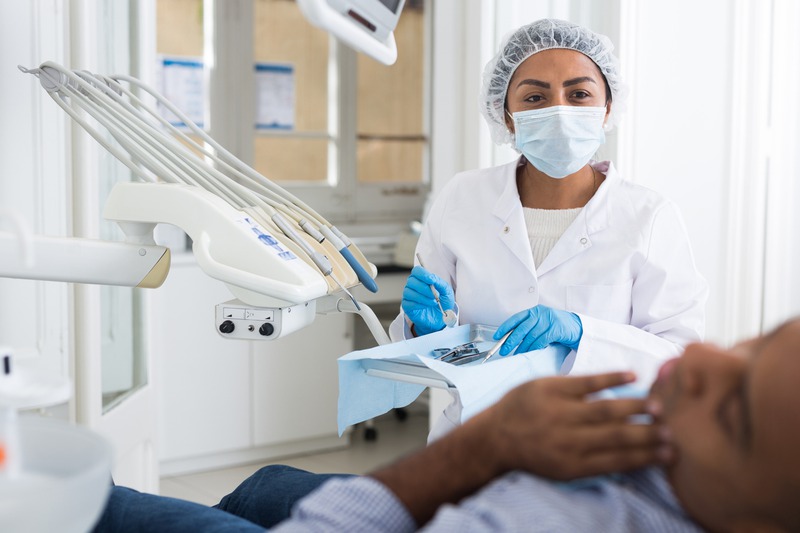
How Soon Should You Visit a Dentist After a Tooth Injury?
Dental emergencies can occur at any time and often require prompt attention. A tooth injury can be a painful and distressing situation that leaves many questioning the immediate steps to take. Knowing when to seek dental care is paramount to prevent further damage and ensure the best chance of saving your tooth.
Determine the Severity of the Injury
Understanding the severity of your tooth injury is the first step before deciding how quickly you should see a dentist. Minor injuries such as small chips or cracks might not warrant an emergency visit, while more significant damage like a knocked-out tooth, significant cracks, or severe pain suggests a need for immediate care.
When Immediate Care is Necessary
-
A tooth has been knocked out or is very loose.
-
There is severe pain that cannot be managed with over-the-counter pain relievers.
-
There is heavy bleeding that doesn’t stop after 10-15 minutes of pressure.
If the injury falls under these situations, seek a dentist as soon as possible. Time is of the essence, especially if a tooth has been knocked out, as it might be possible to reinsert and preserve the tooth if acted upon quickly.
For Less Urgent Injuries
For minor cracks, chips, or discomfort, scheduling an appointment within the next few days is advisable, provided that there are no signs of infection, such as swelling, fever, or bursts of intense pain. These injuries may not require emergency treatment but should still be assessed by a dentist promptly to avoid future complications.
Handling a Dental Emergency
In the case of a severe tooth injury, keeping calm and taking the right actions can save your tooth. For a knocked-out tooth, it’s crucial to keep it moist, either by placing it back in the socket if possible or in a small container with milk or saliva. Avoid touching the roots, and handle the tooth carefully. Then, head straight to the dentist or emergency dental service.
Steps to Take at Home
-
Rinse your mouth with warm water to clean the affected area.
-
Apply a cold compress to the cheek to reduce swelling.
-
Use dental wax or sugarless gum to cover sharp edges that might cut the mouth.
These measures can provide temporary relief and protection until you can access professional dental care.
Follow-Up Care
After an initial treatment, your dentist will likely schedule follow-up appointments to ensure the injury is healing correctly. Subsequent treatments such as root canals, dental crowns, or implants might be necessary, depending on the extent of the damage. Compliance with all follow-up care and instructions from your dentist is vital to the health of your injured tooth and overall dental well-being.
Preventing Future Tooth Injuries
To avoid hurting your teeth in the future, you can do a few things. Sometimes, bad things happen without warning, but you can lower the chances of tooth damage. One good way is to wear a mouthguard if you play sports. This can protect your teeth from getting hit and breaking. You should also not eat foods that are too hard, as they could crack your teeth. Going to see your dentist often for check-ups is another way to keep your teeth in good shape and prevent problems.
-
Wearing a mouthguard – Mouthguards are very useful for keeping your teeth safe, especially if you play sports. They act like a cushion that stops your teeth from getting hurt during games or practices.
-
Avoiding hard foods – Try not to bite into very hard things. Hard candies, ice, or other similar foods might seem harmless, but they can cause your teeth to crack or break.
-
Maintaining regular dental check-ups – Visits to the dentist on a regular basis help keep your teeth healthy. Your dentist can see problems early, which might prevent bigger issues in the future.
Keeping these preventive measures in mind can help you take good care of your teeth. By doing so, you’re less likely to face painful and costly dental emergencies. Your dentist can also give you advice personalized for your teeth on how to protect them even more. So, always take these suggestions seriously when taking care of your oral health.
Selecting the Best Dental Care Facility
When a dental emergency occurs, having a trusted and skilled dentist is vital. Practices offering rapid appointments and flexible hours can be a significant asset in urgent situations. Looking for a top-rated dentist with experience in handling dental emergencies can make all the difference when you are facing a crisis.
The Role of Your Regular Dentist
Your regular dentist who is familiar with your dental history may be the ideal choice for follow-up care. They can provide personalized services and keep a detailed record of your dental health, which is helpful for tracking progress and treatment outcomes.
Considerations for Children’s Tooth Injuries
Tooth injuries in children, especially when involving baby teeth, have unique considerations. Prompt consultations are necessary to ensure that there is no impact on the development of permanent teeth. Pediatric dentists specialize in these cases, offering precise and compassionate care for younger patients.
Seeking Immediate Dental Attention
In emergency situations, looking for a local dental practice in Duluth, GA can be an excellent way to receive fast and adept care. Such practices are equipped to handle urgent dental injuries and can offer immediate treatments to alleviate pain and commence the healing process.
Conclusion
In the event of a tooth injury, the quicker you can see a dentist, the better. While some injuries might not require emergency attention, significant damages like knocked-out teeth or severe pain indicate a need for immediate action. Equipped with knowledge and prompt action, preserving your dental health after an injury can be successfully managed with the help of experienced dental professionals.
